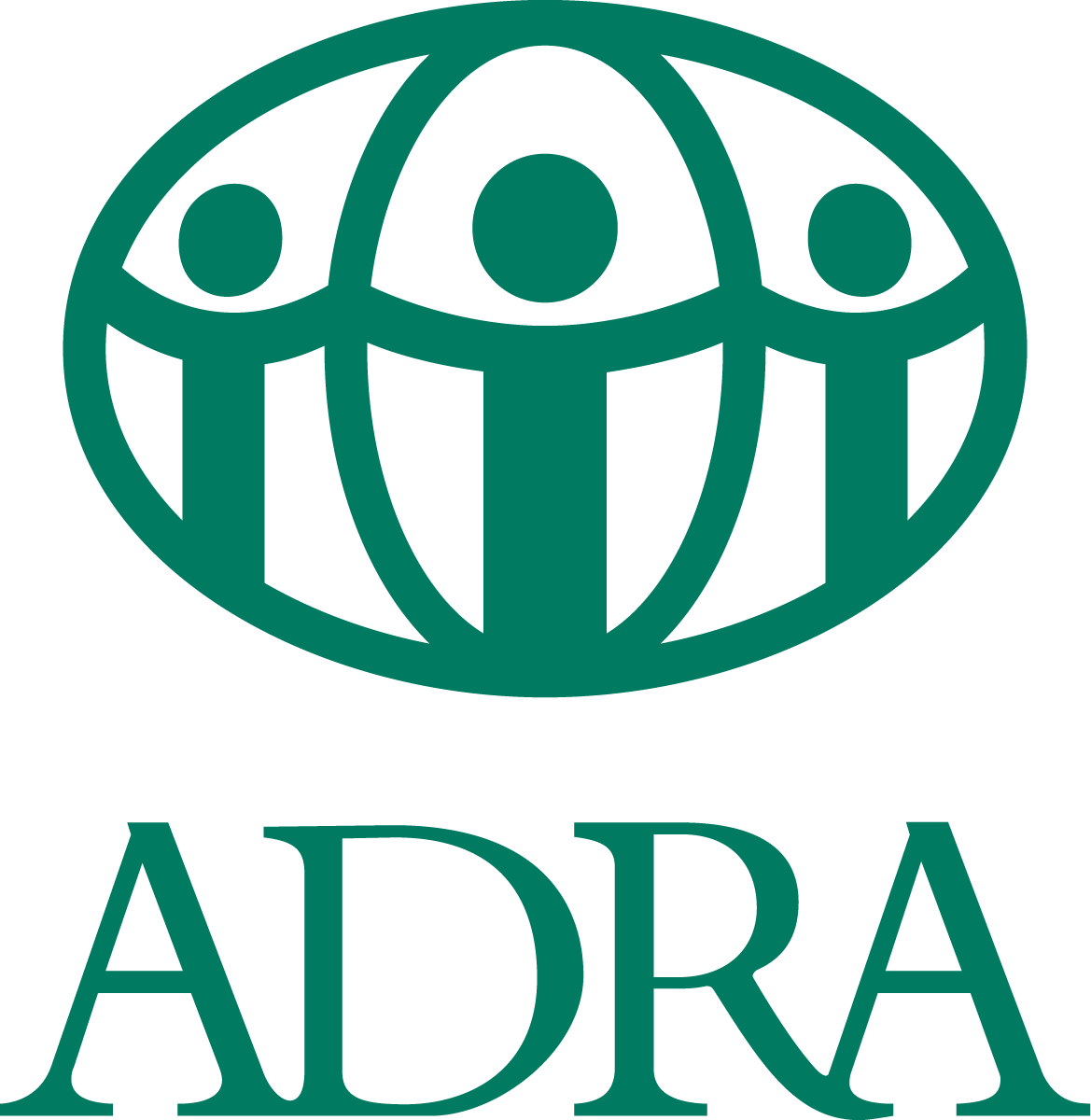ADRA Asia joins us for a Monitoring Visit
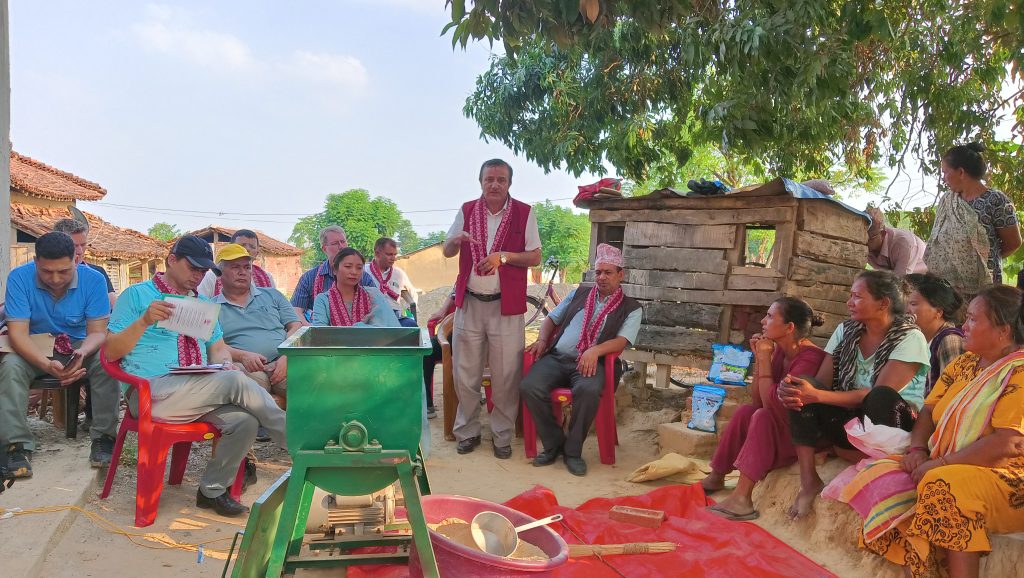
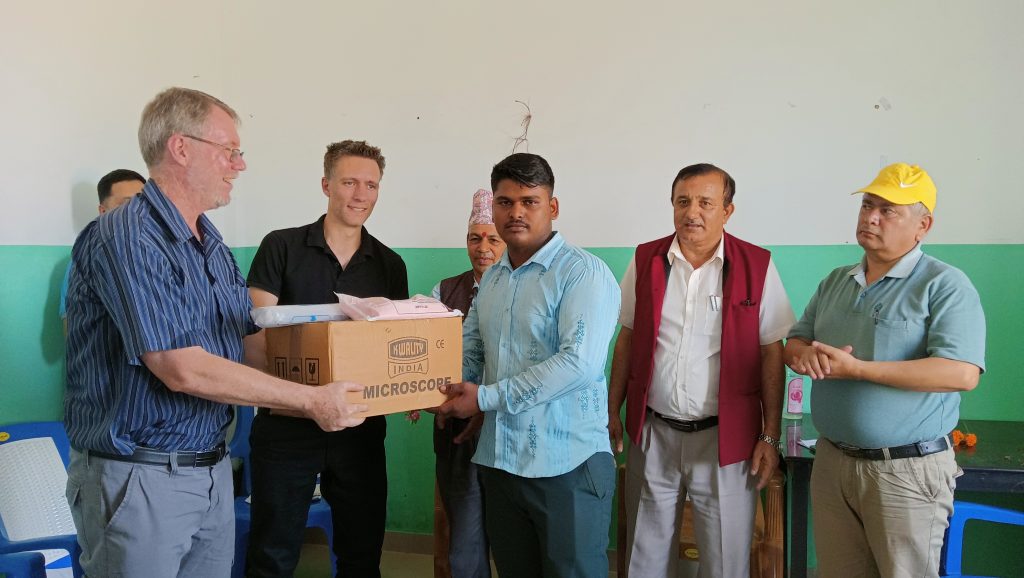
How do we increase the milk supply and subsequently the income of smallholder dairy farmers? How do we meet the increasing demand for milk? These are some of the issues that we are addressing through our TERAI project which is working at the local, provincial, and national levels to improve practices around dairy farming. Brendon Irvine, Program Director and project advisor at ADRA Asia came to see how the project was going.
In Nepal there are a vast number of smallholder farmers who are trying to earn their living producing milk but are unable to get their milk into the local market. Key issues are poor milk production due to unhealthy animals caused by poor nutrition, parasites, unhygienic sheds. “If we train farmers, they improve the health and nutrition of the cows and buffalo, which increases healthy milk production, then, with improved sanitation around milk processing, it can be bought by local markets. The result is a sustainable and reliable livelihood for the smallholder farmers and more milk to meet increasing local demand.” Dr. Anil Chandra Neupane, Project Manager, ADRA.
At this stage of the project, Lead Farmers have completed their training and are now training other farmers in nutrition and balance feed preparation, parasite management, shed management and other best practices. The training is practical and is already making a difference.
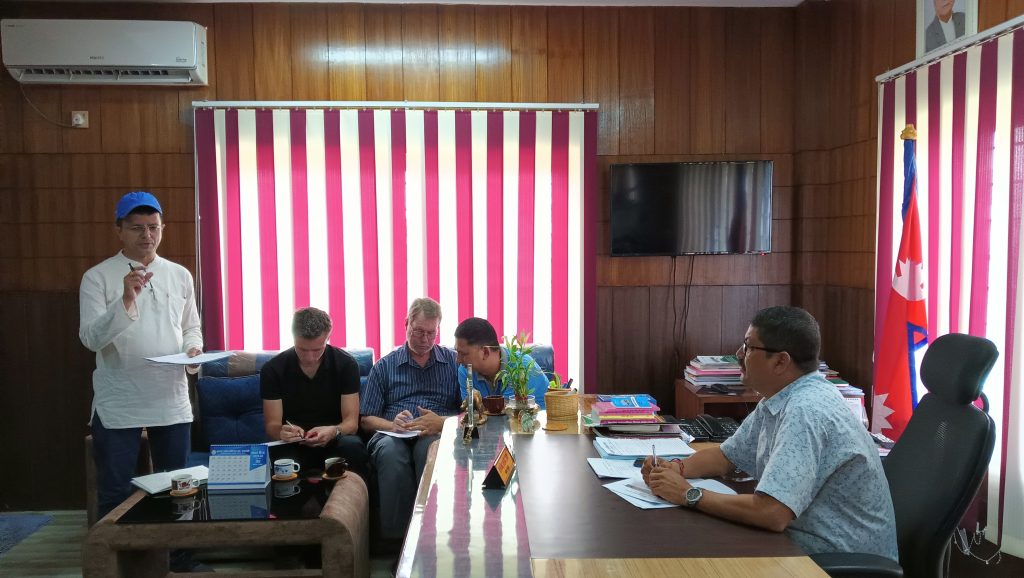
Alongside this local level training, the project is also working with the National Livestock Breeding Office -Pokhara, to introduce new Jersey cow genetics into the national breeding program. Through artificial insemination and embryo transplant, the resulting cows, bred for their higher yields and longer milk producing years will benefit the farmers and the milk industry. The cows that are widely farmed currently require more care and management to produce milk. With the existing generally poor practices they only produce milk well for a few years. This means that farmers who have spent a large sum of money investing in a cow, may not see the expected return. Improving their nutrition, care and health through training, will mean that the existing breed of cow can provide milk longer. Introducing improved genetics provides cows that will be hardier and produce more milk in the future.
During his five-day visit Brendon visited our operating areas in Banganga, Sainamaina Municipality and Kanchan Rural Municipality of Kapilvastu and Rupandehi districts, to observe training and project activities. He also joined our team in meetings with Ministry of Agriculture and Livestock Development, Department of Livestock Services, Nepal Agriculture Research Council, National Livestock Breeding Office, Pokhara, National Cattle Research Program, and Agriculture and Forestry University, Rampur. He thanked the project team and its partners for their hard work in a preparing a good foundation of the project in a short period of time and provided further suggestions around the integration of nutrition, veterinary services, sanitation, and disease management to achieve the best yield from the genetically improved breed.
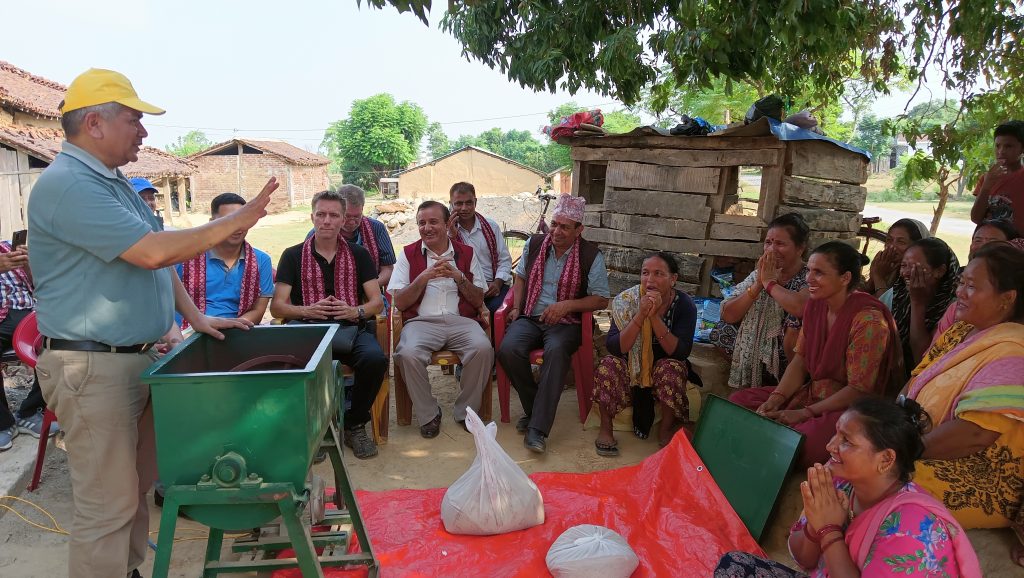
We would like to thank key organizations and individuals who participated in recent meetings and provide key inputs to this project: Prof. Dr. Hom Bahadur Basnet, Dean of Faculty of Animal Science, Veterinary Science, and Fisheries of Agriculture and Forest University, Mr. Sagar Poudel, coordinator of National Cattle Research Program (NCRP), Mr. Umakant Chapai, District Coordination Committee (DCC), Mr. Nawraj Dhakal, Chairperson of Kanchan Rural Municipality, Mr. Tom Pignon, the Country Director, ADRA Nepal, Mr. Kabir Ratna Sthapit, Team Leader – Livelihoods, ADRA Nepal, Mr. Netra Pratap Shen, Executive Director of Forum for Rural Welfare and Agricultural Reform for Development Nepal, Mr. Mahendra Pandey, the chairperson of Indreni Rural Development Centre (IRDC) and Mr. Pradeep Shah, Executive Director of IRDC.
This 4-year project, operating in Banganga, Buddhabhumi, Sainamaina Municipality and Kanchan Rural Municipality of Kapilvastu and Rupandehi districts, has been funded by Jersey Overseas Aid and is implemented by ADRA Nepal in partnership with Forum for Rural Welfare and Agricultural Reform for Development (FORWARD) Nepal, and Indreni Rural Development Centre (IRDC) Nepal.
